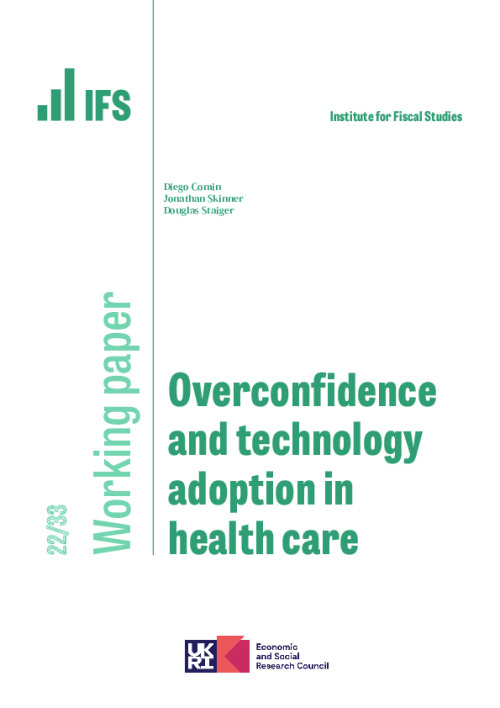Variation in technology adoption is a key driver of differences in productivity. Previous studies sought to explain variations in technology adoption by heterogeneity in profitability, costs of adoption, or other factors. Less is known about how adoption is affected by bias in the perceived skill to implement the technology. We develop a Bayesian framework in which the use of the technology depends on perceived skill, while the outcomes from using it depend on actual skill. We study the determinants of adoption in the case of implantable cardiac defibrillators (ICDs) for which we document large differences across hospitals in the rate of adoption between 2002-2006, and a strong reversal from 2006-2013. We find that perception bias explains two-thirds of the cross-hospital variation in ICD use. A dynamic version of the model with learning about bias predicts accurately the subsequent decline in ICD use between 2006-2013. These results suggest an important role for misperception in explaining the wide variation in the adoption of new technologies.










